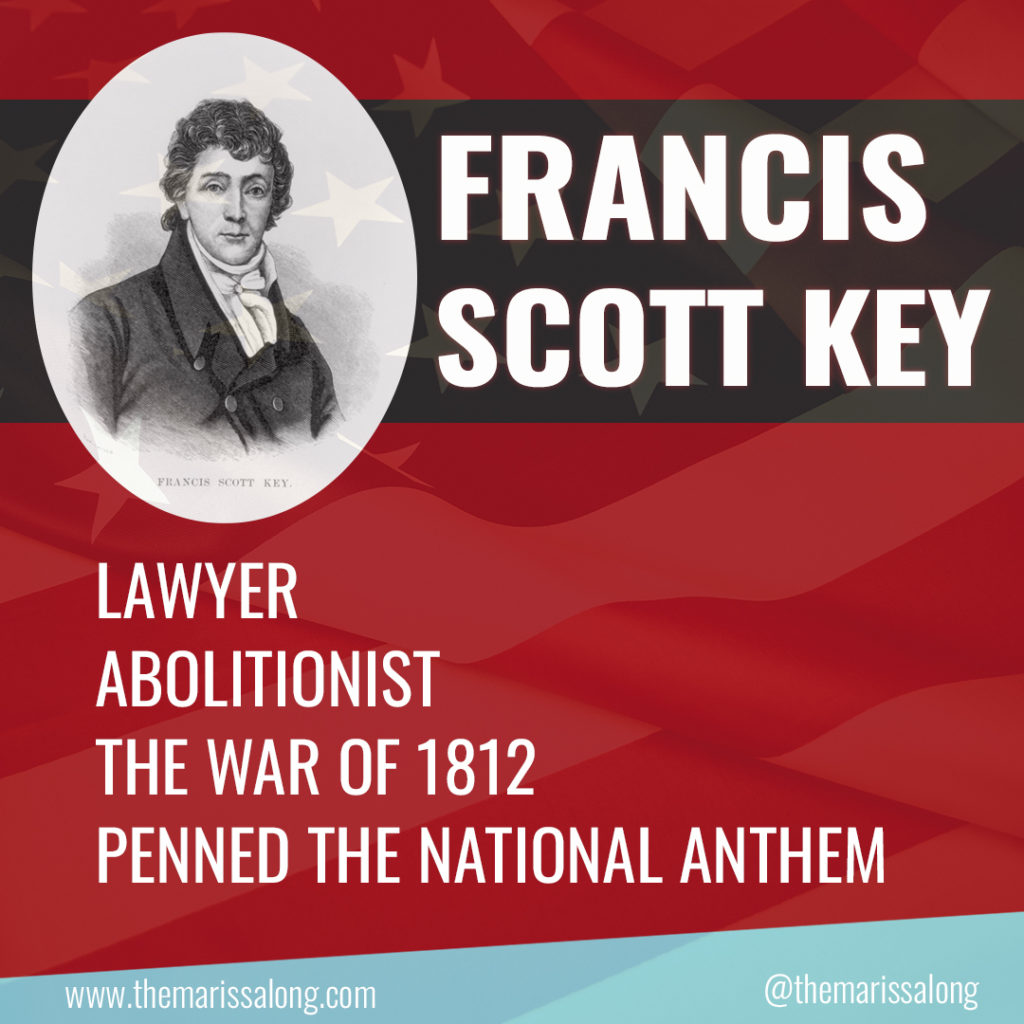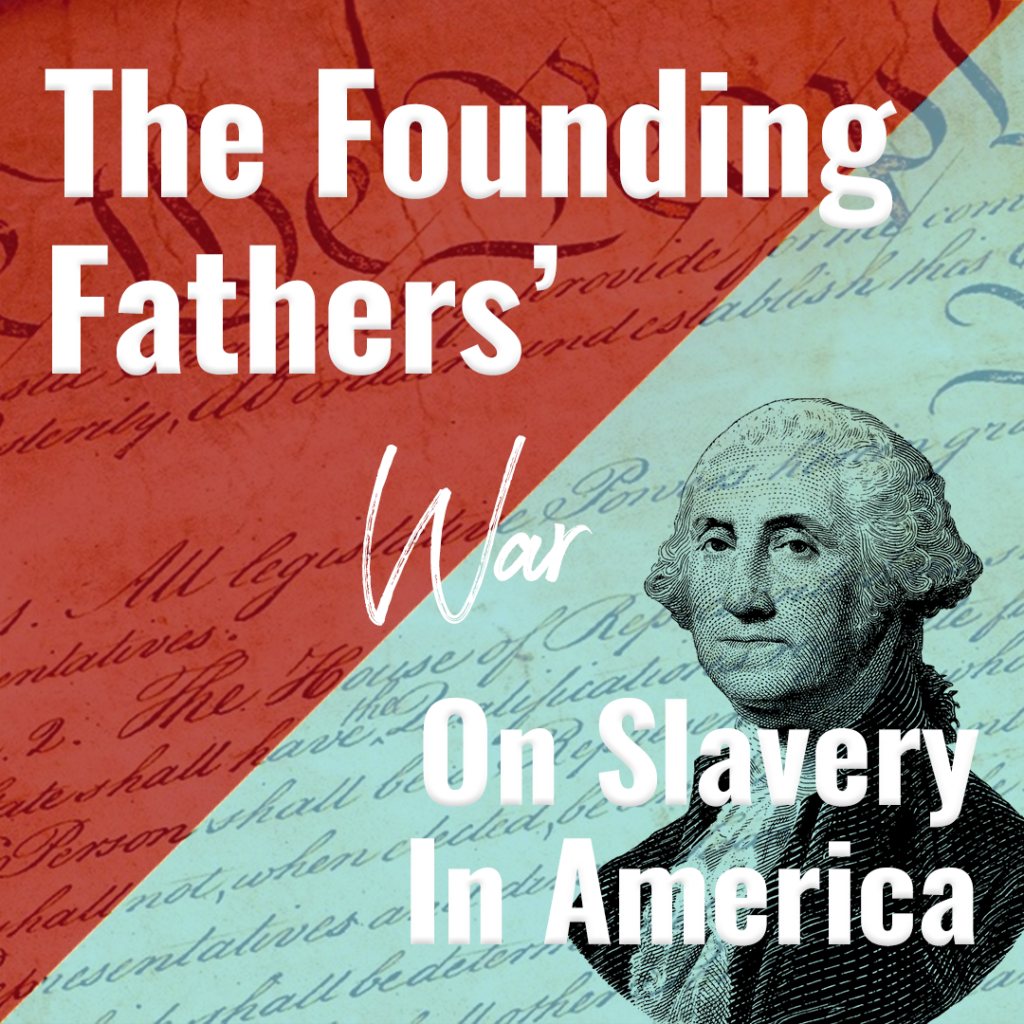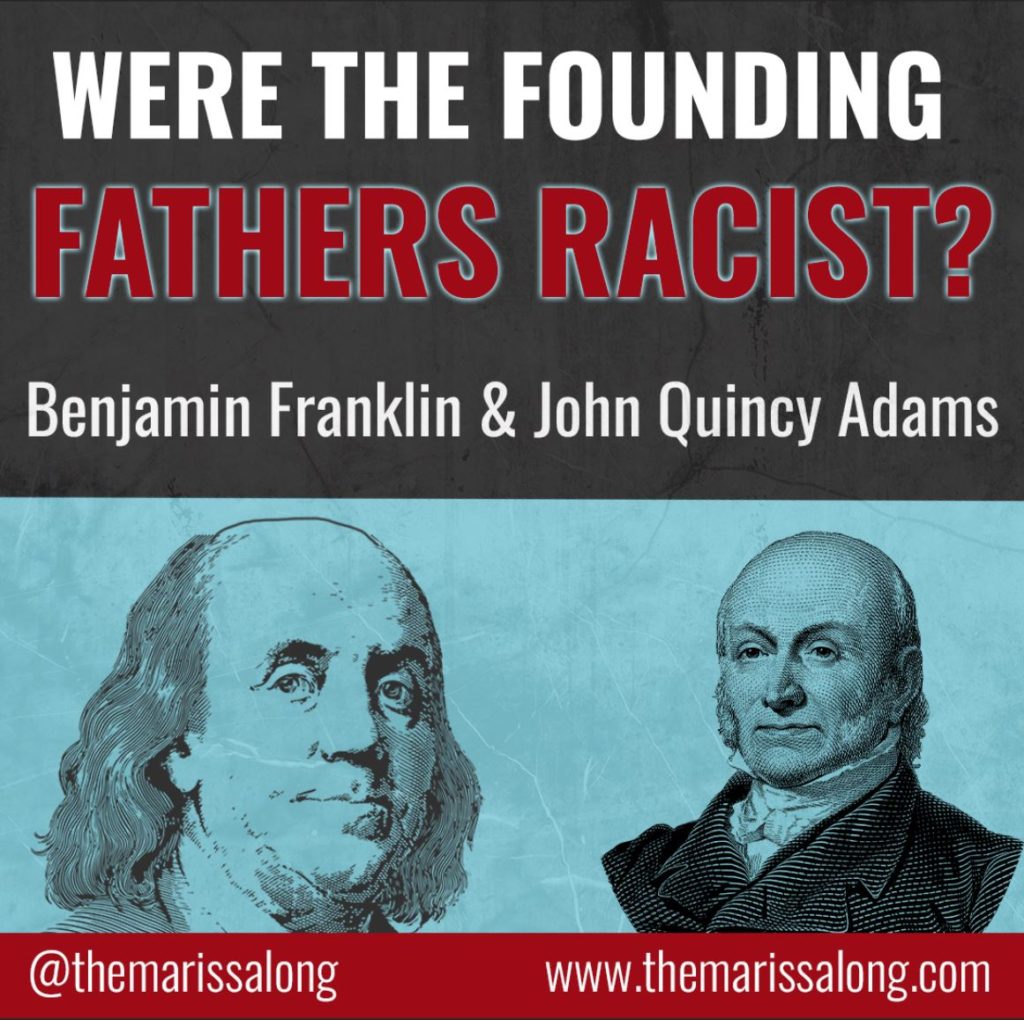Francis Scott Key. Author of the Star Spangled Banner, heroe of American history, and a man whose past is deeply wrought with controversies. Modern textbooks and websites claim he was a racist hypocrite. Historians of his time claim he was a freedom fighter and good man.
So who was he?
Want to read more? The Founding Fathers Waged War On Slavery.
When Was Francis Scott Key Born?
Francis Scott Key was born August 1, 1779 on a plantation in Frederick County, Maryland, just three years after America claimed independence from Britain. His family was wealthy with slaves to work the plantation.
His family set a high standard for young “Frankie”, as they called him. His relatives fought on both sides of the American Revolution, practiced law, and held official positions in government.
Francis was homeschooled until age 10 when he spread his wings and traveled to Annapolis in 1789 where he “studied Latin, Greek, mathematics, grammar, and the sciences” at St. John’s College (NPS.gov).
Francis Scott Key Gets Married
He went on to study law, and in 1802, he married the daughter of a wealthy plantation owner. Mary Tayloe “Polly” Lloyd and Francis lived in Georgetown, and Key supported their eleven children with his law practice.
Francis Scott Key’s Career
Key got his claim to fame in 1807 when he defended Justus Eric Bollman and Samuel Swartwout in their case against a treason charge masterminded by Aaron Burr.
Key was also “an advisor to Andrew Jackson and served as the District Attorney for the District of Columbia from 1833 to 1841” (NPS.gov).
FUN FACT! Francis Scott Key was a devout Episcopalian and participated in several Episcopalian churches. He even wanted to pursue a career in the ministry but decided a law practice would support his family better (NPS.gov).
Francis Scott Key and the War of 1812
Because of Key’s religious beliefs, he did not agree with the War of 1812, but, just five years after his claim to fame in the treason case, Key served in the Georgetown Light Field Artillery against the British.
In 1814, the British burnt Washington D.C., much to the national embarrassment of the Americans, and weeks later, they attacked Fort McHenry in Maryland.
If you know the story of the Star Spangled Banner, you probably remember that Key was on a British ship and not allowed to go anywhere while the battle was raging. Why was he on a British ship?
No, he wasn’t captured (that’s what I always thought!). His acquaintance, Dr. William Beanes, was captured by the British, and Key was called upon to use his lawyer charm to negotiate the doctor’s release. Key and Colonel John Skinner negotiated Dr. Beanes’ release from the British, but the men were not granted release from the ship until the British attack was over.
All Key, Skinner, and Beanes could do was wait for the battle to be over, but the cannons raged all night and rockets streaked through the sky. The battle seemed to doom the Americans, and Key had no choice but to retire for the night and wait and see what God would decide. The next morning, when Key awoke, he came up on the ship’s deck and looked across the shore to the fort and was astounded to see the American flag still flying high and proud.
He jotted down some notes of a poem as his heart swelled with patriotic pride, but the poem went unfinished until later that week when he finished it and titled it “Defense of Fort M’Henry”. His brother-in-law then set the poem to music, and it became a patriotic song for Americans and later the National Anthem.
Francis Scott Key’s Death
Key died of pleurisy on January 11, 1843 after a full life and successful career. He was 63 when his family buried him in Maryland at Mount Olivet Cemetery.
Was Francis Scott Key a Racist?
Key provides plenty of conundrums when examining his stances on slavery. On one hand, he and his family owned slaves, and he defended the recapture of runaway slaves. NPS.gov states that he “vehemently opposed abolition and favored the idea of colonization, helping to establish the American Colonization Society in 1816.
On the other hand, Key did free several slaves.
However, Key also supported abolition. On AmericanMinute, William Federer writes that in 1820, a U.S. ship captured the slave ship Antelope, which contained approximately 300 African slaves.
Key became involved in the legal battle to free the slaves of the Antelope and dedicated his own personal resources to win their freedom. The legal fight lasted 7 years and was brought before the Supreme Court in 1825.
Henry S. Foote recorded of the Supreme Court case that, “[Key] greatly surpassed the expectations of his most admiring friends … Key closed with… an electrifying picture of the horrors connected with the African slave trade.”
In the book Dark Places of the Earth: The Voyage of the Slave Ship Antelope, Jonathan M. Bryant writes, “[…] Key argued… that all men were created equal…
“Slavery was a dangerously hot subject, but Francis Scott Key stepped deliberately into the fire.”
Key challenged the courts with the question that if the ship were full of white men, would it rule differently?
Despite Key’s best efforts, including the declaration that “‘by the law of nature, all men are free’”, the Supreme Court made a historically shameful decision “to define slaves as property”. A small number of the captured men were returned to Africa.
Were the Founding Fathers Racist? Benjamin Franklin & John Quincy Adams
Did Francis Scott Key Own Slaves?
Francis Scott Key did own slaves. But he worked to free other slaves at his own expense.
Key is one example of moral contradictions in the lives of historic figures. Many of the Founding Fathers vehemently opposed national legalization of slavery, but they owned slaves at the same time. This does not justify their participation in slavery, but, at the same time, it does not negate their efforts to end slavery and ensure the freedom of black Americans in the future through the Constitution.
Francis Scott Key & the American Colonization Society
The NPS.gov website is right in its claim that Key helped found the American Colonization Society. The Society was thought to be a solution to slavery, and Key raised $11,000 to aid Africans in returning to their home country. Key was a strong advocate of colonization to allow freed slaves to form a colony in their native country where they could truly be free.
In 1833, Key executed the will of Senator John Randolph who wrote in his will that all his 400 slaves were to be freed, saying, “I give and bequeath to all my slaves their freedom, heartily regretting that I have ever been the owner of one.”
Randolph’s will gave his freed slaves supplies, assets, money, and even coverage of travel costs to settle in Ohio. If a slave was older than 40 years old, he received 10 acres of land. When Randolph’s family members challenged his dying wishes in court, Key fought them for almost a decade and successfully executed the will according to its original intent.
Randolph’s freed slaves founded Rossville, Ohio.
Another instance where Francis Scott Key respected black Americans occured in June 1842 when William “Billy” Costin passed away. Billy was a respected, free black man who was an activist against slave codes in Washington D.C. His funeral was followed by a long procession of black men riding horses.
All in the procession were black, except for Francis Scott Key – the lone white man who honored the respected activist.
William Federer mentions that an abolitionist newspaper recorded the following:
“It must be admitted that for a distinguished citizen of Washington to ride alone among a large number of colored men in doing honor to the memory of a deceased citizen of color evinces an elevation of soul above the meanness of popular prejudice, highly honorable to Mr. Key’s profession as a friend of men of color. He road alone.”
ANSWERING THE QUESTION: WAS HE RACIST?
The question is up to you whether Francis Scott Key was racist. Federer writes that “just as today, many are evolving in their views to realize that abortion is wrong – killing an unborn human […] back then, many were evolving their views to realize that slavery was wrong — the enslaving of another human.”
There are no accounts of Key treating his slaves poorly. Key often gave legal advice to both freed blacks and slaves for free.
The choice is yours, but it is important to decide through the lens of history. Francis Scott Key was a man of his time who did great good for America and enslaved black people. He had a good heart and served his country well. There is no doubt that he committed moral wrongs during his lifetime, but it appears clear that if Key could have ended slavery nationwide, it would have been to his satisfaction to end that great evil. He thought of people as equal, regardless of their skin color and fought for it in the courts and with his personal wealth and assets.



3 comments